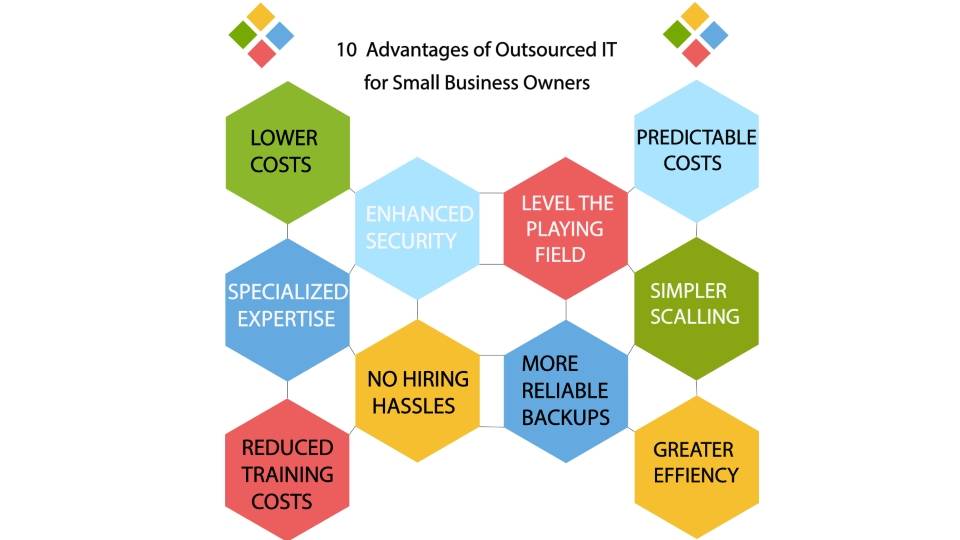
5 Tips for Managing Outsourced IT Functions
A large number of companies outsource not only IT infrastructures and desktop support, but also data center hosting, security, e-commerce systems, and software development. One benefit of outsourcing is the ability to redirect would-be IT budget allotments to other key tactics of a company's business strategy, such as production line improvements or hiring additional sales personnel. But IT outsourcing is not without considerable risks, and it's important that management takes the steps necessary to ensure the outsourcing project is a booming success, rather than a dismal failure. Here are five tips that will help in this regard.
Train your managers to properly oversee outsourced processes.
Every market leader's success is due in part to well-managed processes. These processes are key to the company's ability to meet customer needs, which influences customer satisfaction, a key contributor to revenue growth.
Managing processes well requires that outsourced projects, in particular, be led by managers skilled in leading internal teams, as well as those of an outsourcing firm. Therefore, companies must hire applicants with well-established decision-making and administrative expertise, and train them in leading internal and external teams.
Read how to build trust and form high-performance teams in your organization
Ensure the cultural bias of the outsourcer's staff mirrors that of your own staff.
An outsourcing company may pay wages that are significantly lower than those paid by its client firms. However, achieving labor cost savings is not without risk in terms of inferior skill sets and productivity. The success of the outsourcing project depends in part on the availability of staff members who possess the needed skills that allow them to be consistently productive. Equally important is the selection of an outsourcer whose employees have a cultural bias similar to that of your company's staff members in terms of work ethic.
Limit project outsourcing to those projects for which your staff lacks the needed expertise.
Some IT leaders appear to evaluate each initiative in their companies' project portfolios as a potential outsourcing venture because, in some cases, a project might cut their staffing costs by 50 percent or more. But cost cuts impose other costs, such as a shortage of opportunities to develop in-house expertise
When evaluating an outsourcing project's feasibility, the key objective should be to acquire expertise that's beyond your team's core competencies. Once that criterion is met, the list of potential outsourced projects should be limited to those endeavors for which the in-house team can write comprehensive requirements specifications and manage using quantified deliverables and well-qualified checkpoints.
Be flexible in price negotiations with preferred providers.
When seeking ways to cut costs, it's tempting to seek fixed price bids, which are a valid choice for some programming, blogging, or other short-term projects. Fixed price bids, however, may be a poor choice for outsourcing projects such as data entry or call center projects. Before negotiating for a fixed price bid, discuss project requirements with your industry peers to learn about the pricing models they've used successfully. It's equally important to be flexible when negotiating with your preferred bidders. After all, they, like you, seek to satisfy their customers to best ensure long-term, profitable business relationships.
Read about using the dedicated team outsourcing model
Pay a fair price for the work to be done.
A company that underbids other competitors to a significant degree is quite likely a start-up or a company that lacks the cash needed to pay skilled employees. In either instance, the work that underpaid employees produce may be substandard.
For these reasons, it's to a company's benefit to pay a fair price for the work a third party performs. Chances are, a fair rate will be less money than a direct employee might earn for the same work, but higher than the market rate for the outsourcing location.
Outsourcing some IT functions can lower personnel costs, making funds available to other production-centric projects. But doing so is a futile effort if outsourcing key processes or services reduces a company efficiency and effectiveness. Because a company's overall success depends on customer satisfaction, the selection of a second-rate outsourcing provider can wield significant blows to a company's reputation if the outsourcer's personnel fail to perform well. The risks of that happening is lessened if you hire and train outstanding managers, are willing to pay outsourcing firms a fair price for the work they perform, and take other steps to ensure the outsourced projects are booming successes.
Written by Billie Nordmeyer



